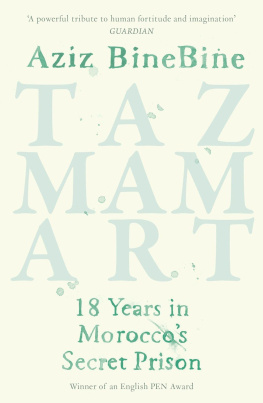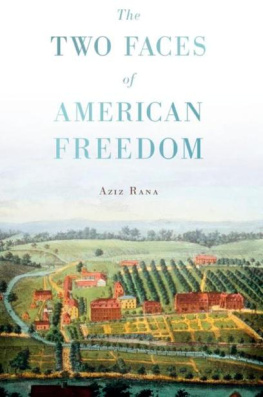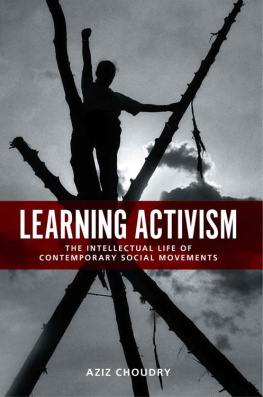CURZON SUFI SERIES
Series editor: Ian Richard Netton
Professor of Arabic and Middle Eastern Studies, University of Leeds
The Curzon Sufi Series attempts to provide short introductions to a variety of facets of the subject, which are accessible both to the general reader and the student and scholar in the field. Each book wil be either a synthesis of existing knowledge or a distinct contributor to, and extension of, knowledge of the particular topic. The two majoi under-lying principles of the Series are sound scholarship anc readability.
BEYOND FAITH AND INFIDELITY
The Sufi Poetry and Teachings of Mahmud Shabistari
Leonard Lewisohn
AL-HALLAJ
Herbert W. Mason
RUZBIHAN BAQLI
Mysticism and the Rhetoric of Sainthood in Persian Sufism
Carl W. Ernst
ABDULLAH ANSARI OF HERAT
An Early Sufi Master
A.G. Ravan Farhadi
PERSIAN SUFI POETRY
An Introduction to the Mysticaql Use of Classical Persian Poetry
J.T.P. de Bruijn
THE CONCEPT OF SAINTHOOD IN EARLY ISLAMIC MYSTICISM
Bernd Radtke and John O'Kane
SUHRAWARDI AND THE SCHOOL OF ILLUMINATION
Mehdi Amin Razavi
First Published in 1998
by Curzon Press
15 The Quadrant, Richmond
Surrey, TW9 1BP
1998 Lloyd V. J. Ridgeon
All rights reserved. No part of this book may be reprinted or reproduced or utilised in any form or by any electronic, mechanical, or other means, now known or hereafter invented, including photocopying and recording, or in any information storage or retrieval system, without permission in writing from the publishers.
British Library Cataloguing in Publication Data
A catalogue record of this book is available from the British Library
Library of Congress Cataloguing in Publication Data
A catalog record for this book has been requested
ISBN 0-7007-1013-2 (Hbk)
ISBN 0-7007-1014-0 (Pbk)
For Evie, Barbara and Fiona
I am as My servant imagines Me. I am with him when he thinks of Me. If he thinks of Me inwardly, I think of him inwardly; if he mentions Me in company, I mention him in a superior company. If a man approaches Me by a foot, I shall approach him by a yard; if he approaches Me by a yard, I shall approach him by a furlong. If he comes to Me walking, I shall go to him running.
Hadth, see W. Graham, Divine Word and Prophetic Word in Early Islam (The Hague: Mouton, 1977), p. 130.
If Sufism in its beginnings had been an "outspoken elitist form of religion," Despite the diversity in form and understanding, these manifestations of Sufism shared the fundamental goal of seeking God through devotion and service which could lead to an intimate and private relationship with the Absolute based on love. One mystic of this period was 'Azz Nasaf, who was born in Central Asia and gathered a circle of followers in Bukhr and various locations in Iran. His works are of great interest because they contain descriptions of the different Islamic world views of the age and by a careful analysis of their contents it is possible to piece together Nasaf's own particular mystical perspective which has a striking resemblence to those of Ibn 'Arab and Najm al-Dn Kubr.
There have been many scholarly works on individual Sufis of the medieval era, however, Nasaf has attracted very little attention among contemporary researchers. This is quite surprising since Nasaf was one of the greatest Sufi masters of his time and composed several major works that are distinctive for their clarity and simplicity in explaining the Sufi path. Although Nasaf has been over looked in the modern day and age, he was the subject of academic interest in the West in earlier centuries. In 1665, a Turkish version of Nasaf's Maqad-i aq along with a Latin translation was published Mol also included a fifty-seven page introduction in French in which he discussed some of the themes in Nasaf's theosophy as well as continuing Meier's investigation into manuscripts of Nasaf's works.
Since Mol's studies in the early 1960s, western scholars have only made brief references to Nasaf as an interpreter of Ibn 'Arab
One point that will become clear to the reader is that this book includes many translations, some lengthy, from Nasaf's books. The reason for this is that it is best to let the original author speak for himself rather than present watered-down paraphrases which sometimes omit significant details. In addition, the literal approach to translating Nasaf's works has been adopted here in an attempt to avoid the pitfalls of "reader-friendly" interpretations which not only overlook the nuances and technical terminology of the original texts but also becomes lost in a fog of poetic language which may not reflect the intention of the original author.
This book is a result of several years of research undertaken at various universities in England, the United States of America and Japan while I was Ph.D. student. During this period, I was lucky to receive assistance from numerous scholars whose recommendations and comments shaped the course of my studies, and this work would not have been completed without their help. Firstly, I should express my gratitude to Professor A. Matsumoto of Eichi University in Japan, who not only read through Nasaf's al-lnsn al-kmil with me while I was studying at the International University of Japan for my M.A., but has continued to take an interest in my research in this field. My study of Nasaf's texts lead me to the State University of New York at Stony Brook from October 1994 to May 1995, where Prof. W. Chittick kindly read through Nasaf's Kitb-i tanzl with me (in manuscript form). In addition, Prof. Chittick consented to review an early draft of the first section of , and he unstintingly drew my attention to many of the facets of the wujd interpretation of Sufism which would otherwise have been omitted.
In England, my understanding of Nasaf's theosophy was nurtured under the guidance of Dr. L. Lewisohn who clarified numerous problems related to Sufi terminology and belief. Always unselfish with his time, Dr. Lewisohn looked at several pieces of this work and suggested various ways to improve it. Another great debt is to Prof. Netton who listened patiently to my ideas and plans for three years. Not only did he provide numerous contacts and give me adequate academic freedom to pursue my studies on Nasaf, but he also was an infinite source of motivation.
I would also like to express my gratitude to all the members of the Imanari family in Muikarnachi in Japan where I enjoyed their hospitality for several lengthy periods of time during which I continued my studies on Nasaf in a comfortable and tranquil environment. I would also like to mention my good friend, Vargu Shankar Ajay whose sense of humour, support and insights on a variety of topics contributed to the development of my research.
This piece of research would never have materialised had it not been for the considerable financial assistance that I received from the British Academy and the British Institute of Persian Studies.













